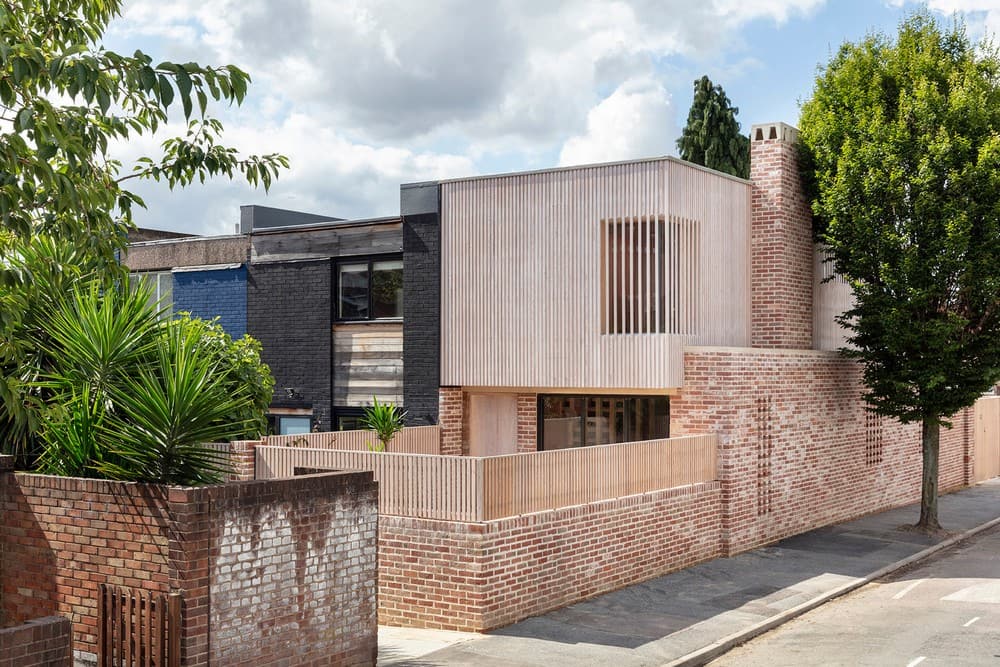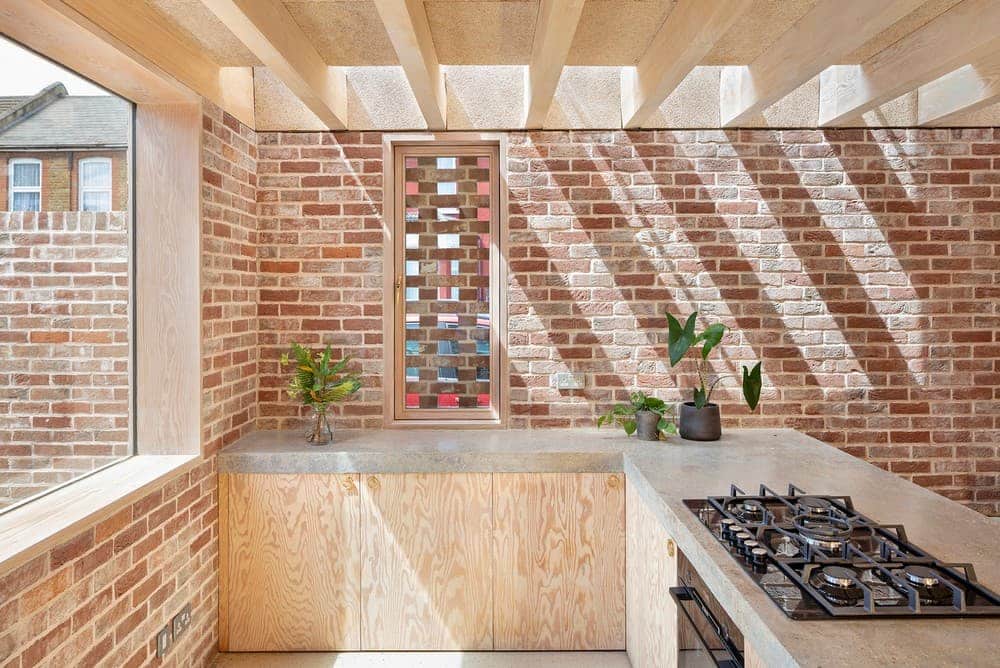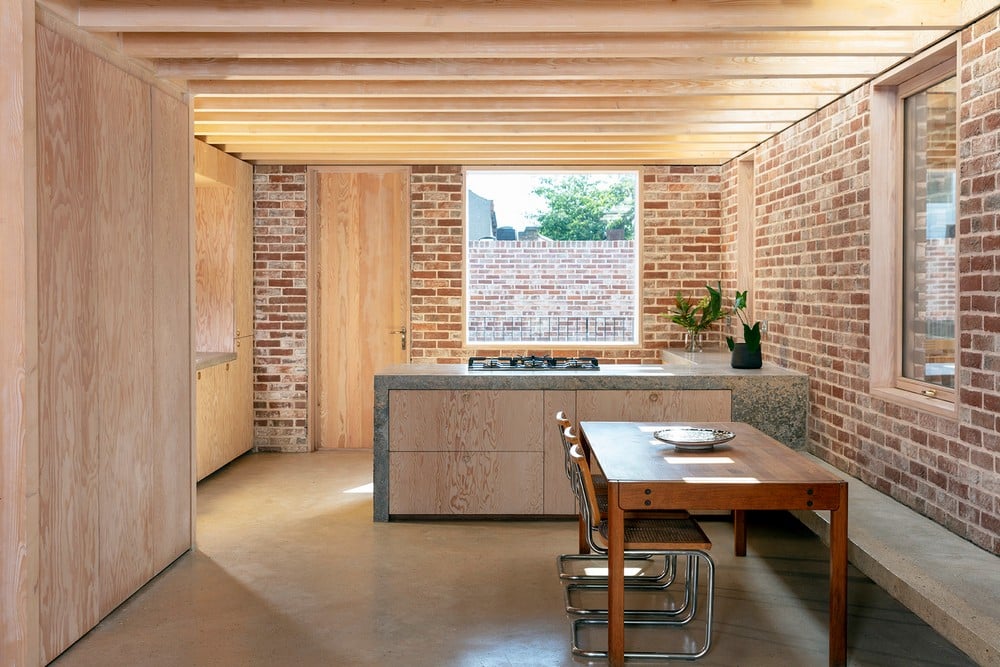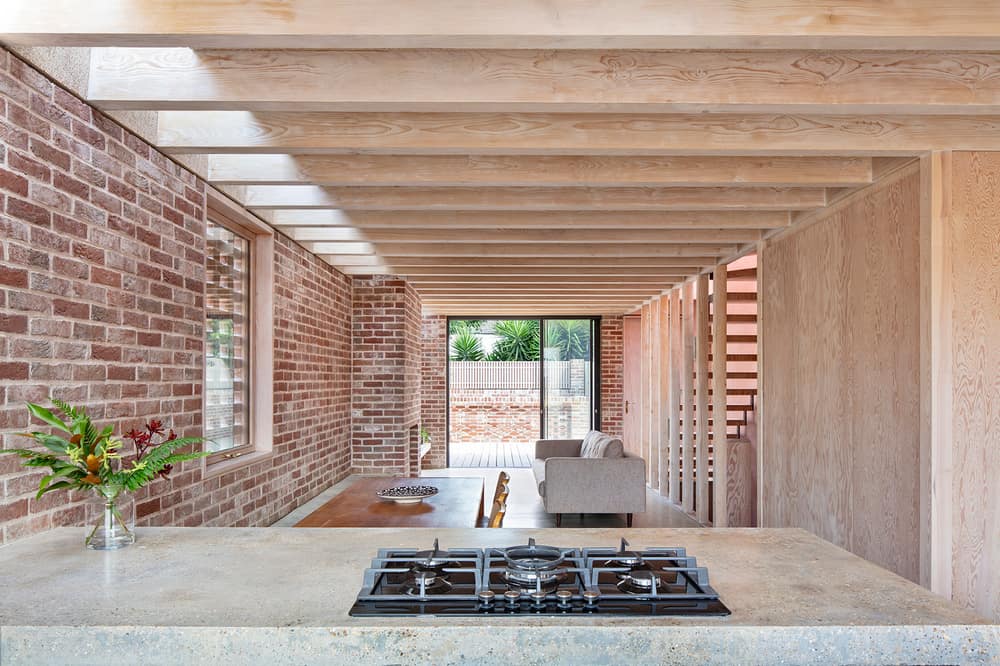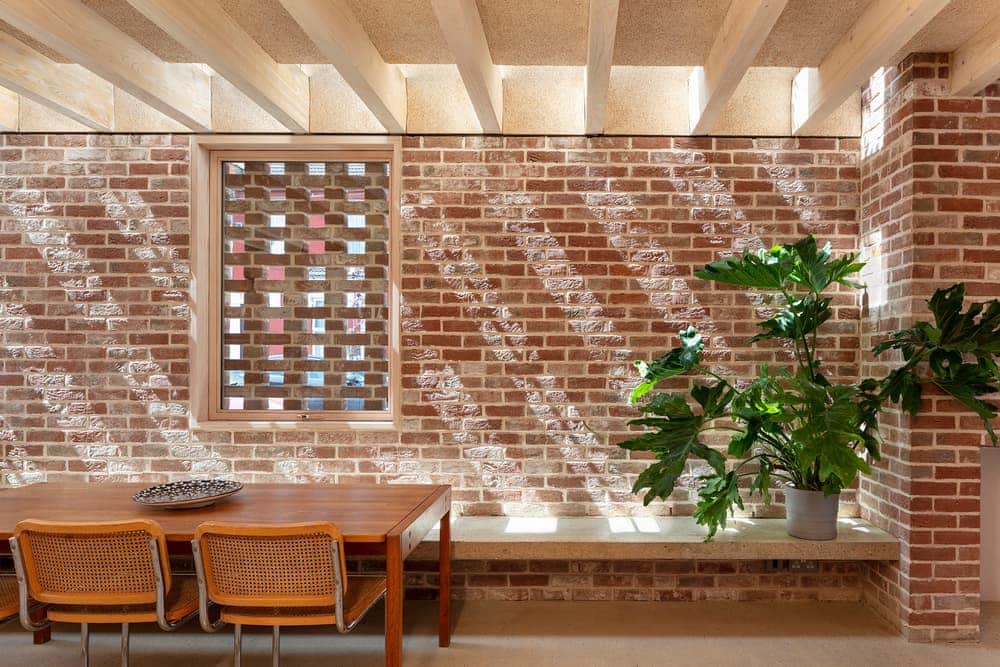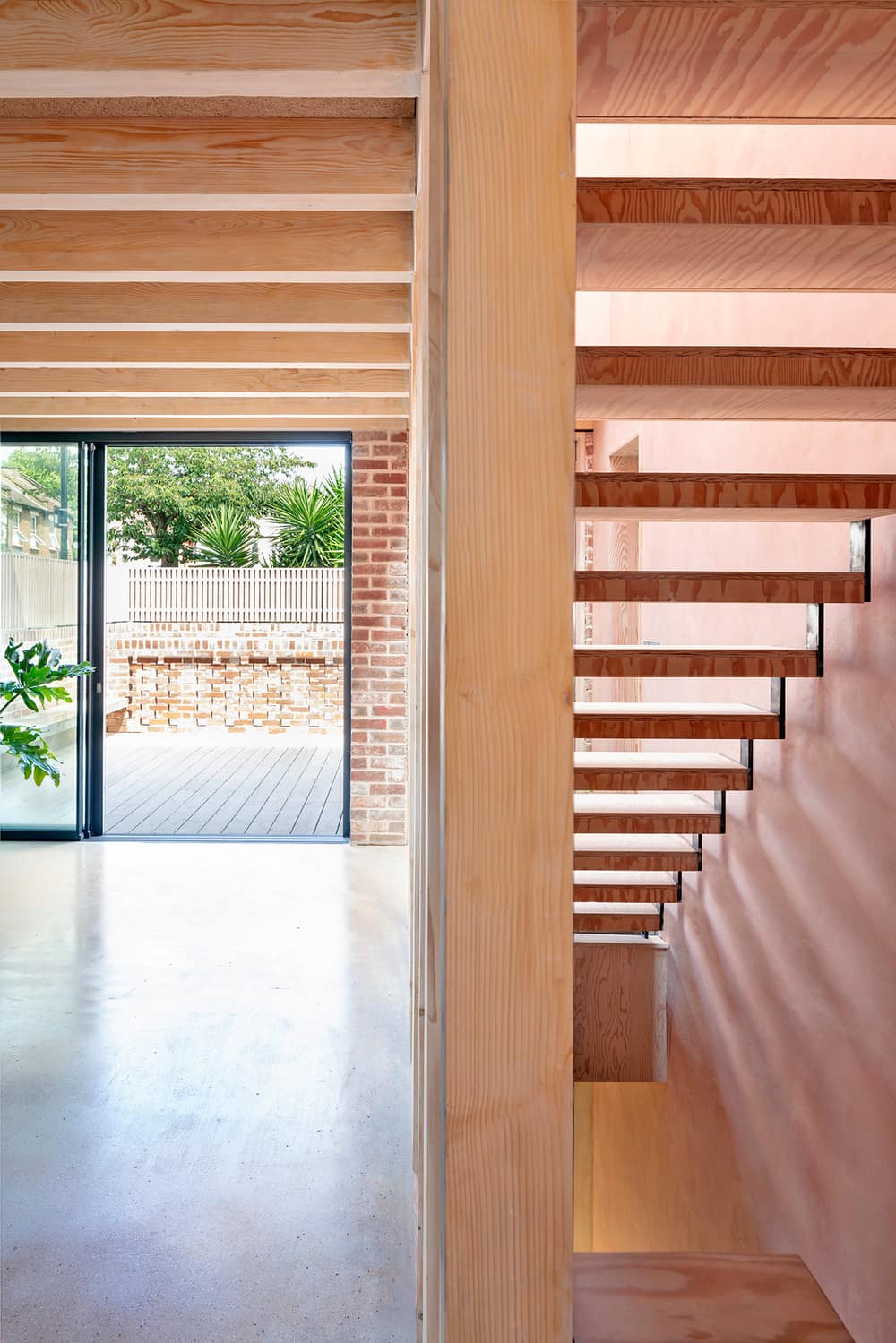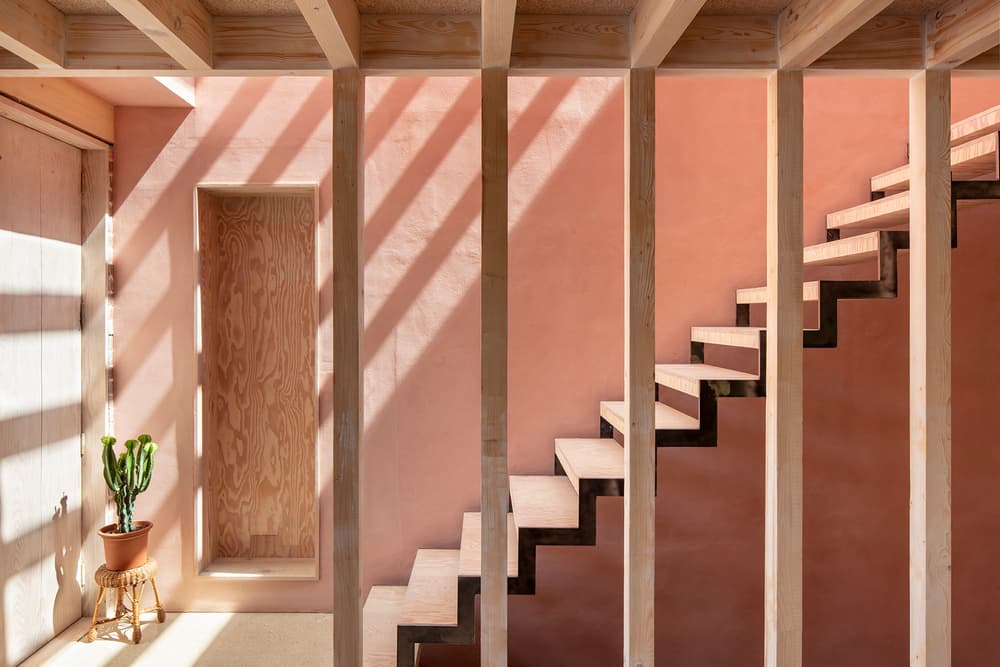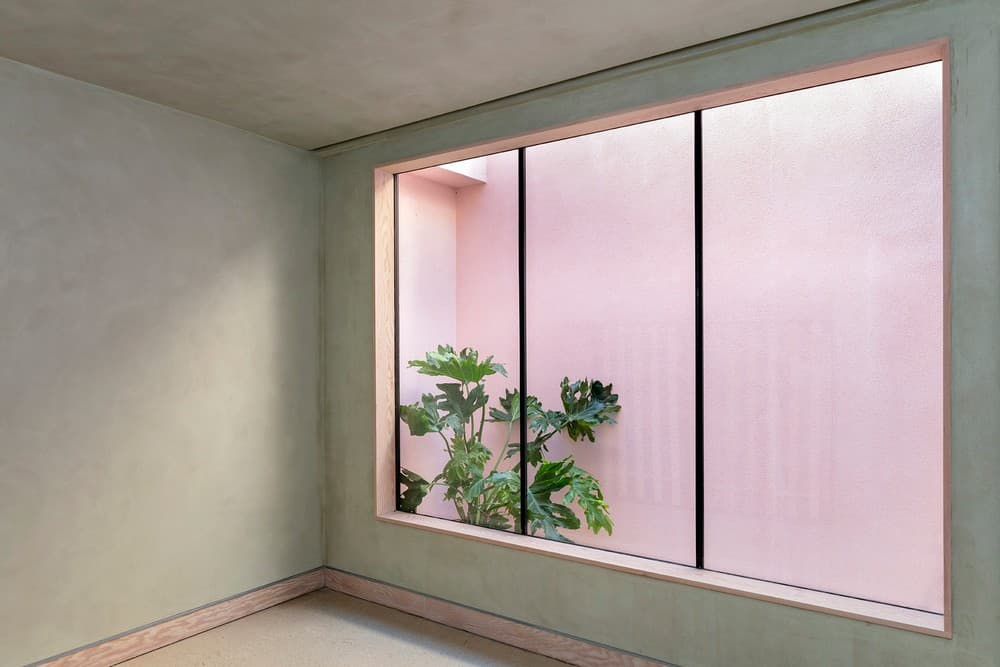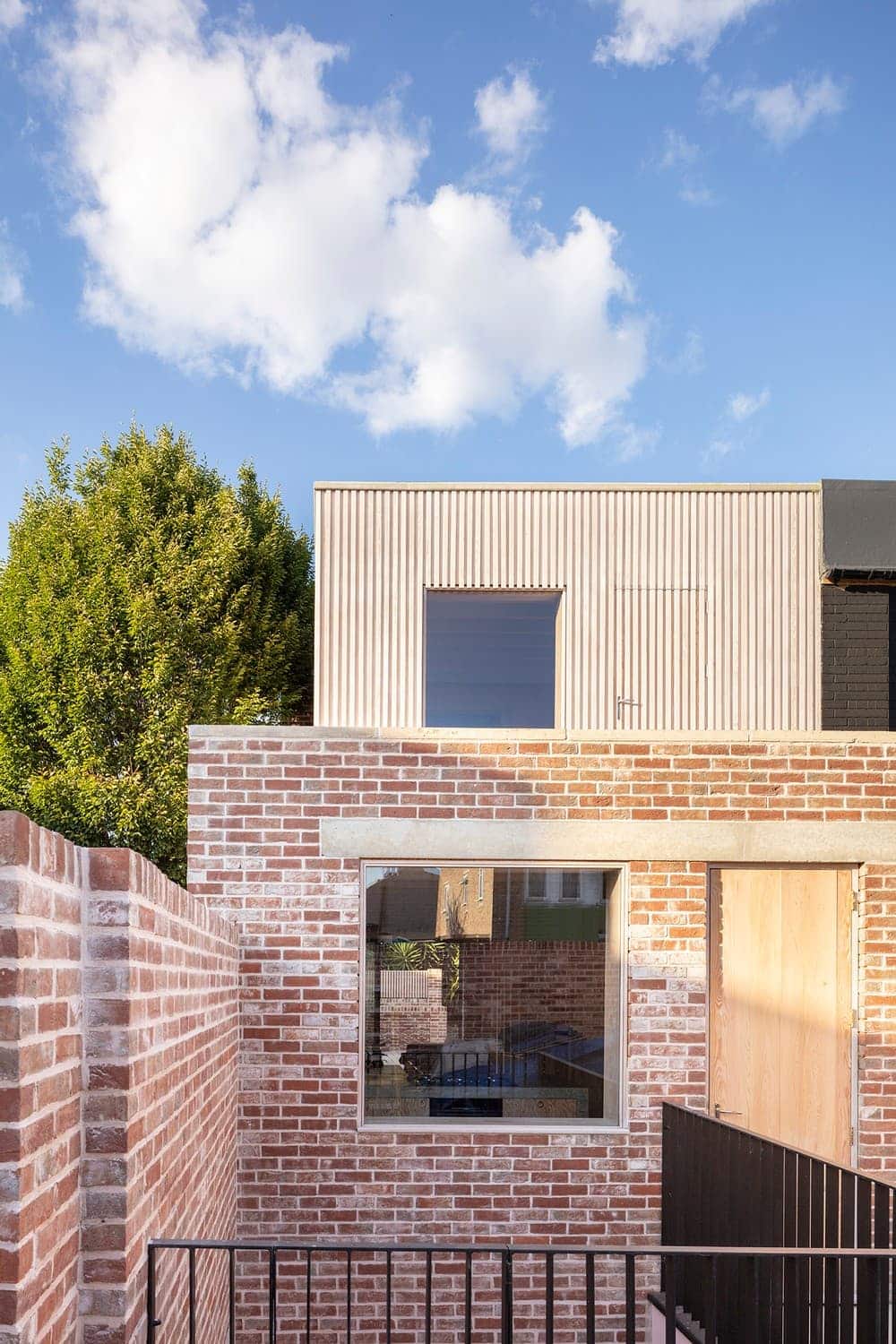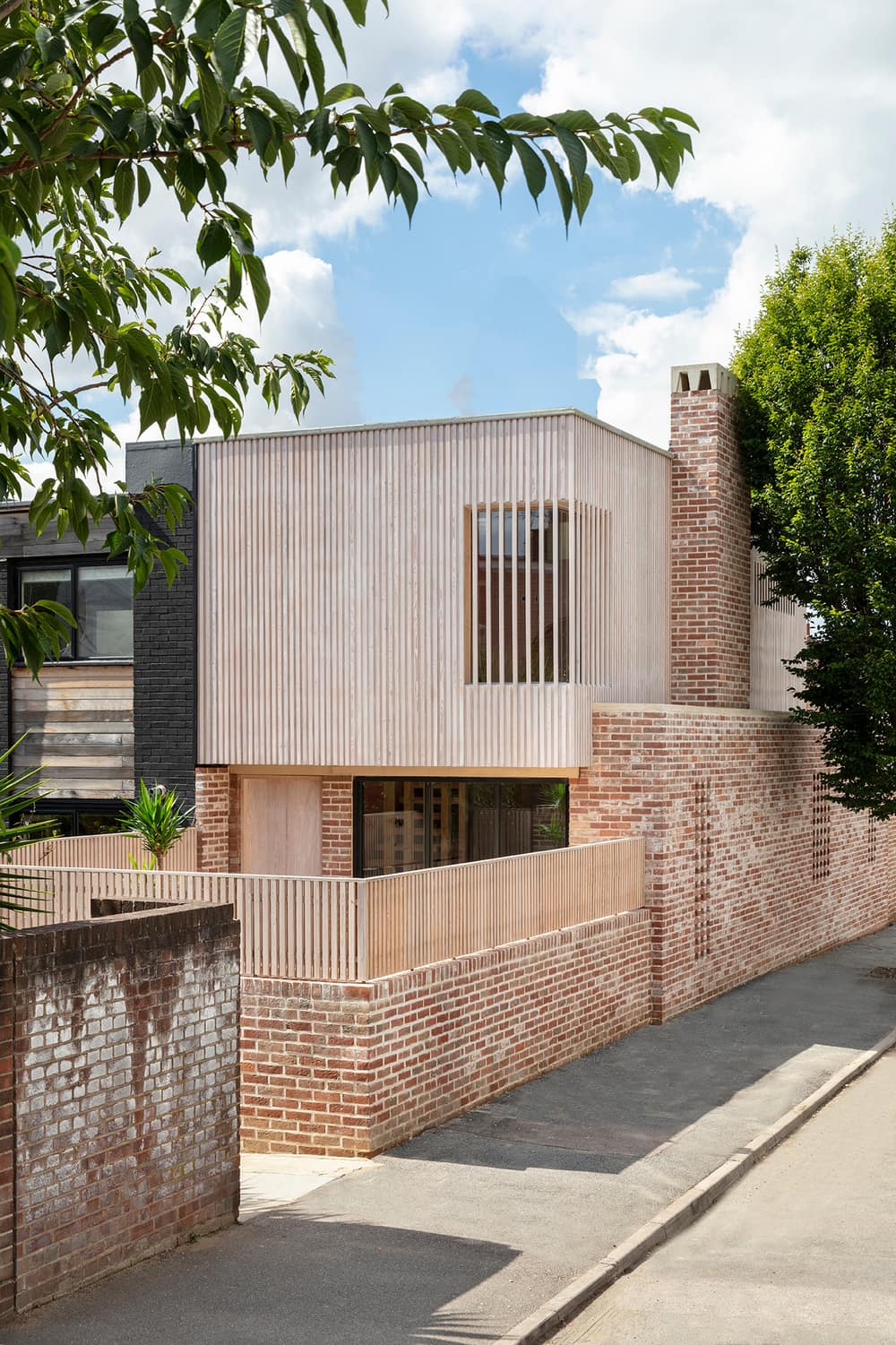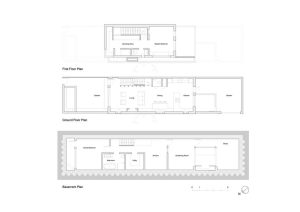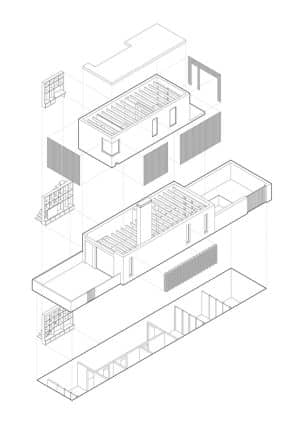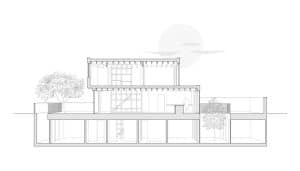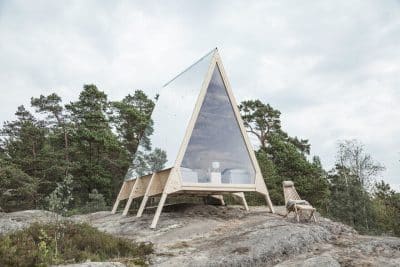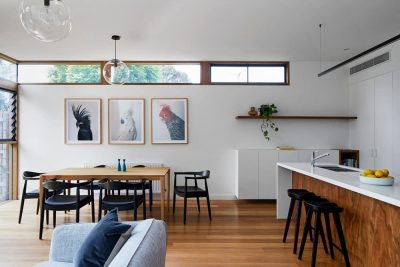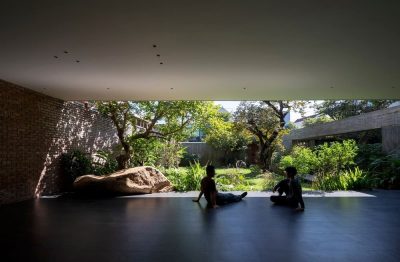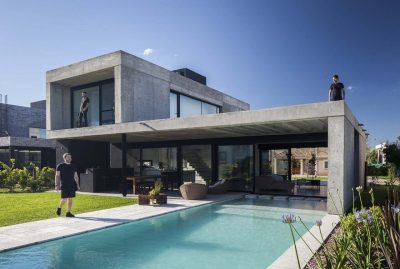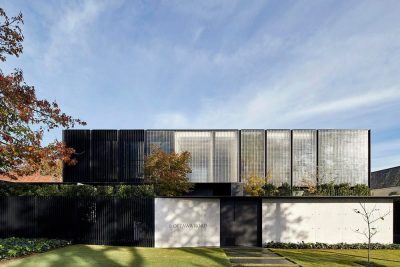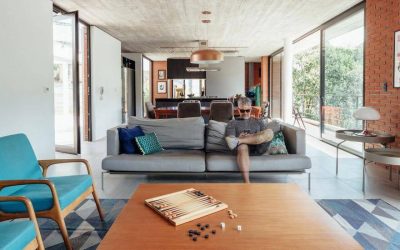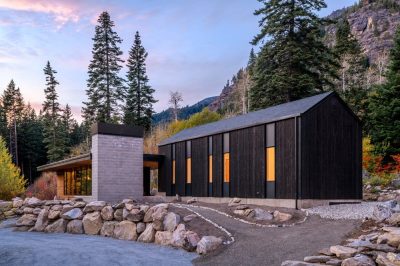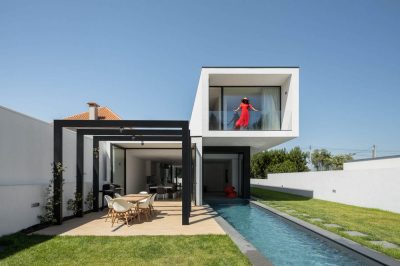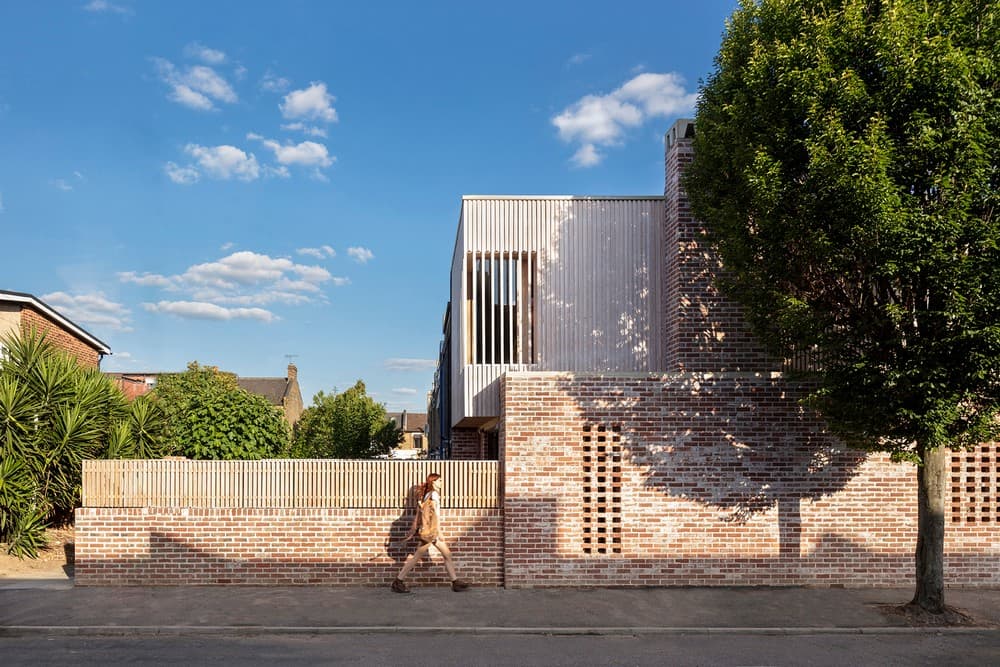
Architects: McMahon Architecture
Lead Architect: Louise McMahon
Location: United Kingdom
Area: 188 m²
Year: 2022
Photographs: Fernando Manoso
Leyton House forms a new home for a filmmaker and writer. The design reimagines a neglected, narrow plot that sits at the end of a 1960s terrace built on the site of a World War 2 bomb. The brief was to maximize the potential of the infill site creating a space to live and work that suits the client’s current requirements but also has the potential to adapt and grow as circumstances change.
A lengthy two-year process was undertaken to convince the planners to embrace a modern and contemporary design approach that ultimately gained approval for a three-story house that respects the spirit of the adjacent ’60s terrace while addressing the Victorian context of the neighboring street. The key to unlocking the site was utilizing the below-ground potential and integrating subterranean spaces into the plan layout. Complex structural works were undertaken to create a full-length basement.
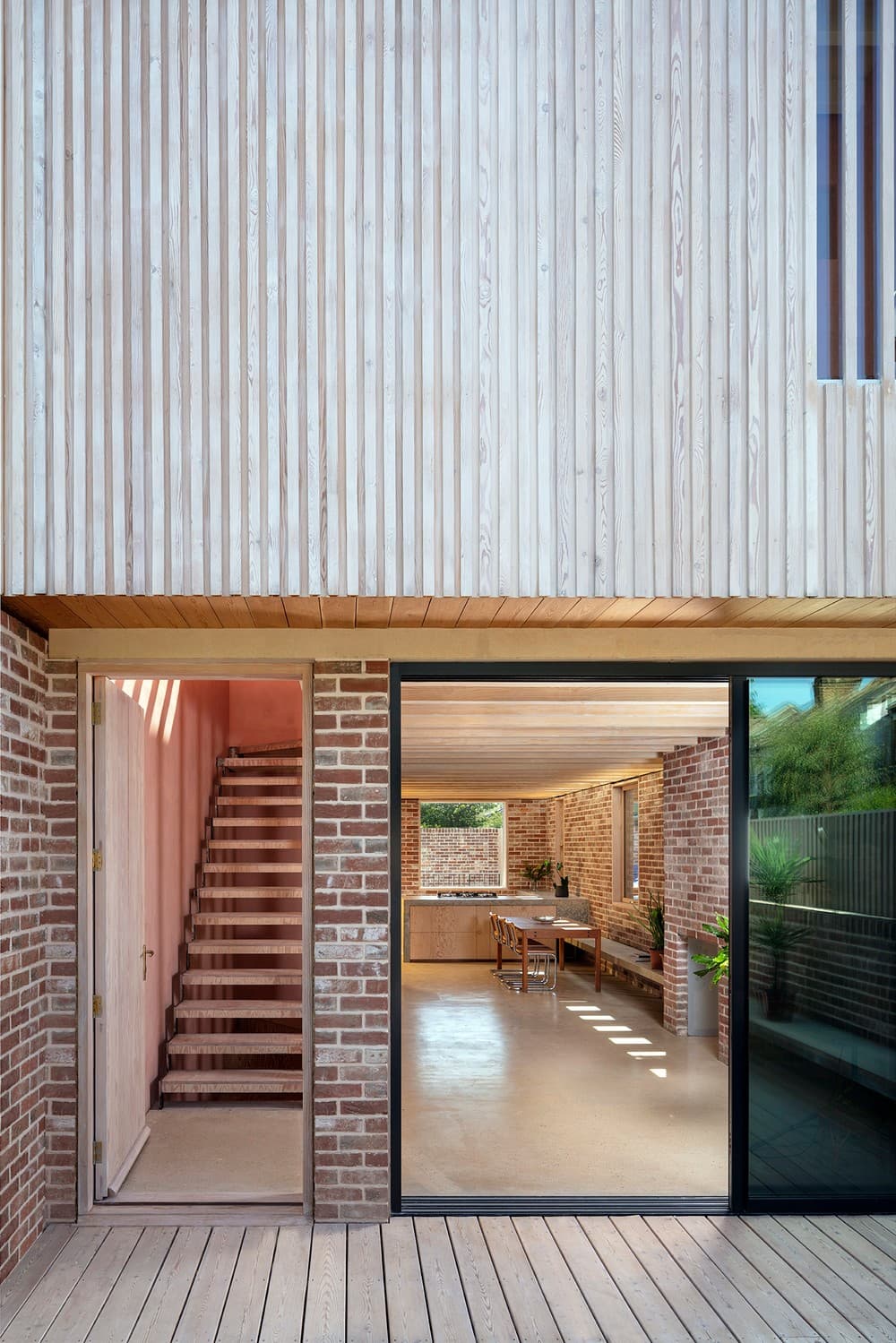
A soft, reddish brick was chosen to suit the varied context, with concrete detailing and flush white lime mortar amplifying the solid monolithic base. Siberian Larch timberwork at the first-floor level is finished in white oil, creating a unified composition that expresses the tectonic relationship between the upper and lower volumes. The forms are subtlely articulated across the site, addressing the street and corner context. A setback between the ground and the first floor creates a roof light extending along the length of the living area. Timber joists are exposed internally, modulating incoming light and creating shadows that enrich the space throughout the day. A continuous in-situ concrete bench demarcates the kitchen, dining, and living areas forming a tectonically simple and ordered space.
Street-facing external windows are screened for privacy, emphasizing the elemental nature of the volumes. Large glazed openings link to internal courtyards and a picture window is formed on the first floor, framing distant views of the city beyond. Internally a warm, natural palette of materials is employed – inspired in part by the client’s time spent living in Mexico – with concrete, brick, and timber softening as progress is made from public to private. A clay plaster wall links all three floors and at the basement level, different tones of clay wrap the walls and ceilings creating a feeling of enclosure and warmth. A top-lit staircase opens up to allow light to wash throughout. Through material integrity and careful detailing the building seeks to create a generosity of space and calmness that the original site did not immediately suggest was possible.

